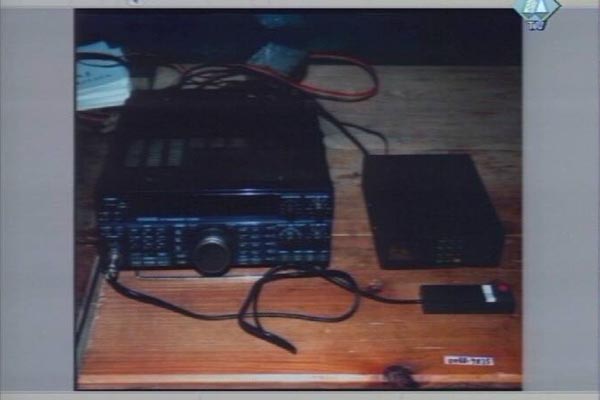Home
THE BATTLE FOR THE INTERCEPTS
The defence counsel for the Srebrenica Seven file written motions in response to the evidence of some 20 witnesses called by the prosecution to prove the authenticity and veracity of the intercepted conversations between Bosnian Serb military and police officers. In their motions, the defence opposes the admission of these documents
 Instruments used in finding, scanning and recording telephone conversations
Instruments used in finding, scanning and recording telephone conversations The trial of seven Bosnian Serb military and police officers will continue on Monday, 19 February, with the evidence of the last witness from a group of some 20 members of the BH Army and police surveillance services, who all testified for the prosecution. In July and August of 1995, they intercepted, recorded and transcribed the radio and telephone conversations of Bosnian Serb military and police officers.
The prosecution called their evidence in an attempt to convince the Trial Chamber of the authenticity and veracity of the transcripts of the intercepted conversations it wants to be admitted into evidence. The prosecution decided to call so many of the "wiretappers" because of the importance of the intercepted conversations and because the defence counsel have been strongly opposed to the admission of both the transcripts and the few audio recordings the prosecution has.
At the judges' request, the defense counsel of the seven accused had to file written motions justifying their opposition to the admission into evidence of those transcripts. The defense counsel consider the recordings and the transcripts of the intercepted conversations "unreliable" because they were intercepted and recorded in periods of "congested and intense radio traffic" by "inexperienced and untrained personnel using outdated equipment".
The defense points to the fact the prosecution has tried to prove the authenticity of the recordings and the transcripts through witness testimony alone. There is a very limited number of existing audio recordings to verify that the conversations actually occurred. Since there are few tapes, it is impossible to check the quality of the recordings and reliably identify the speakers.
The defense also believes that there is no sufficient evidence that the original hand-written notes were actually transcribed as the conversations were recorded or played back. There are a lot of “errors and alterations” in them and it is impossible to determine how and when they were made. The importance of the intercepted conversations was determined on the basis of “someone’s impression” of who the speakers might be, the defence contends.
Finally, the defense notes that the chain of custody has not been established for the recordings and the transcripts. It is not clear where they have been from the moment when they were made until the time they passed into the hands of the OTP. The defense claims that the notebooks where the conversations were transcribed were "not kept together”. Some were kept in offices, some in private homes. At least one intercept notebook appears to have been "physically manufactured well after the date in July 1995".
The battle for the intercepted conversation continues at the trial of seven Bosnian Serb military and police officers charged with crimes in Srebrenica and Zepa in the summer of 1995. The prosecution now has to file its own reply to the allegations made by the defense.
Linked Reports
- Case : Popovic et al. - "Srebrenica"
- 2007-02-09 PROVING INTERCEPTED CONVERSATIONS WERE AUTHENTIC
- 2007-02-07 WITNESS WENT FROM SREBRENICA TO KRAVICA TO ZEPA AND SURVIVED
- 2007-02-06 WHAT HAPPENED TO AVDO PALIC?
- 2007-02-20 FORENSIC REPORTS FROM SREBRENICA
- 2007-02-22 SILENCE IN THE FIRING SQUAD
- 2007-02-23 "DECENT OFFICER" AT THE ORAHOVAC EXECUTION SITE
